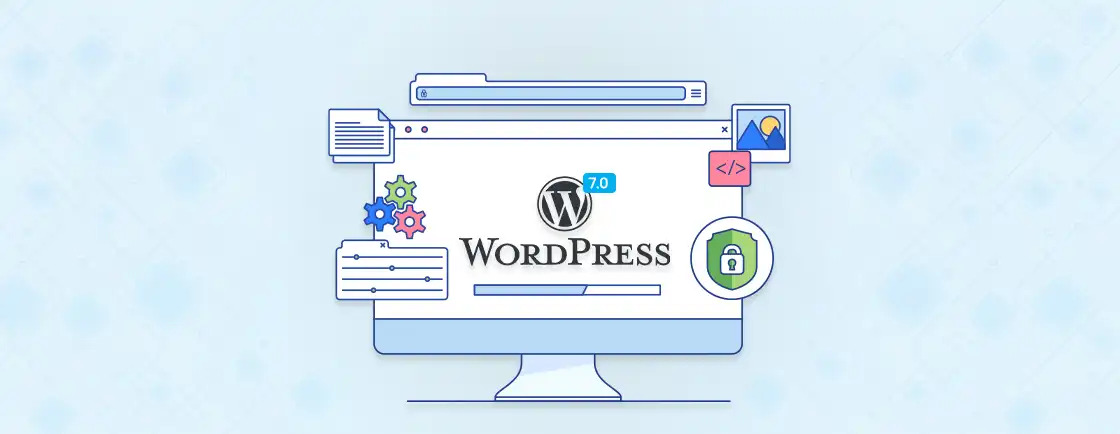Table of Contents
Are you looking for the best website but don’t have the necessary web development skills? Then people may have recommended you WordPress and one of the significant reasons behind that is WordPress plugins. They can help integrate some advanced features and functionalities into a website without writing a single character of code.
There are over 60K free plugins in the official WordPress repository. Moreover, there are thousands of premium (paid) ones on third-party marketplaces like CodeCanyon on the Envato market. But all of them won’t be suitable for your website or even good for any website.Some are of poor quality, some don’t have the ability to fulfill your website requirements, and some haven’t been updated in ages. So how to choose the best WordPress plugins for your website? Well, don’t worry. I have created this guide on how to choose the best WordPress plugin with the help of our expert team of WordPress developers.
Why Use Plugins on WordPress Website?
Plugins are an integral part of WordPress websites, offering numerous advantages and enhancing the overall functionality. Here are the main reasons why you should use plugins on your WordPress website:
- Extend Functionality: Plugins allow you to extend the core functionality of WordPress. They provide additional features and tools that enhance your website’s capabilities. Whether you need to add a contact form, integrate an eCommerce platform like WooCommerce, or improve WordPress website’s SEO, there is likely a plugin available to fulfill your specific requirements.
- Meet Future Requirements: As your website evolves and grows, your needs may change. Plugins enable you to meet your site’s future requirements easily. If you need new features or functionality, you can simply install a plugin that caters to those needs. This flexibility ensures that your website remains up-to-date and adaptable to changing demands.
- Integrate Site with Other Tools and Platforms: Plugins also enable you to integrate your website with other tools and platforms seamlessly. For example, you can use social media WordPress plugins like Social Auto Poster to connect your site with popular social media platforms like Facebook, Twitter, or Instagram. This integration enhances your website’s reach, allows for easier content sharing, and facilitates audience engagement.
By using plugins, you can enhance your website’s functionality, adapt to future needs, and integrate it with various tools and platforms. WordPress’s vast plugin ecosystem offers an extensive range of options to cater to every website’s unique requirements.
Factors to Consider When Choosing a WordPress Plugin
Before you start looking at the WordPress plugin options, it’s important to know exactly what kind of functionalities and features you want in your WordPress website. Make a list of your requirements if possible.
Considering these factors and more will give you a better idea about the best WordPress plugin suitable for your website. Moreover, our WordPress Plugin Developers can help you with the customization of any WordPress plugin or even develop a new custom WordPress plugin one according to your needs.
When evaluating plugins, there are several factors to consider to ensure you make the right decision. Let’s explore these factors in detail:
1. Decide Your Website Niche

Before choosing plugins for your WordPress website, it’s important to decide your website’s niche or the specific industry or topic it focuses on. Understanding your website’s niche will help you identify the types of functionalities and features you need to enhance your website’s performance and user experience.
For example, if your website is an eCommerce store, you’ll need plugins like Woocommerce that cater to online shopping features such as product catalogs, shopping carts, and secure payment gateways. On the other hand, if you run a blog, you might require plugins like Social Auto Poster that allow you to share your blogs effortlessly.
You can discover a variety of plugins suitable for any type of website. These plugins play a vital role regardless of your website’s niche. Here are a few essential plugins:
- Caching Plugins: W3 Total Cache and WP Rocket are popular options for caching plugins. They help improve your website’s speed by storing static versions of your site’s pages, reducing the load on the server and enhancing overall performance.
- SEO Plugins: Yoast SEO , SEMRush and RankMath are powerful tools for optimizing your website’s search engine visibility. They provide features like keyword optimization, content analysis, XML sitemaps, and more, enabling you to boost your website’s SEO efforts.
- Security Plugins: Akismet and Solid Security are reliable security plugins that protect your website from spam comments, malware attacks, and other security threats. They help maintain the integrity and safety of your website’s data and user experience.
Understanding your website’s niche will guide you in selecting plugins that align with your specific requirements, ensuring that you choose the ones that best complement your website’s purpose and goals.
2. Functional/Technical Overview

Look for any technical requirements or compatibility considerations mentioned by the plugin developer and evaluate what the plugin aims to achieve and how it aligns with your website’s goals and requirements.
Ensure that the plugin is compatible with your version of WordPress and other existing plugins or themes you have installed. Understanding the technical specifications of a plugin helps avoid compatibility issues and ensures smooth integration into your website.
Remember, each plugin serves a specific purpose, so it’s crucial to evaluate the functional/technical overview to ensure it meets your requirements. With careful consideration, you can select the right WordPress plugin that adds value to your website and helps you achieve your online goals.
3. Last Updated

Are you satisfied with the features and functionalities offered by the plugins? Then you can start comparing them based on the non-technical factors. When you open any plugin on the WordPress library, there is a sidebar on the right showing a bunch of crucial information. The first piece of information is, of course, the version of the plugin. But right below that is “Last Updated”.
As the name suggests, this info shows when the plugin was last updated by its developers. Sometimes, you may see a plugin last updated a few years ago. In that case, it doesn’t matter how good its features are or how good its ratings are. It would not be ideal to choose that plugin for your website since you won’t get frequent updates for your website.
By default, it’s recommended you compare the plugins and choose one that was updated more recently. But make sure you first take their features into account.
4. Analyzing the Plugin’s Active Installations

After “Last Updated” comes “Active Installations”. It’s not directly related to the technical capabilities of the plugin. But the number of active installations shows how many people actually use this plugin on their website.
Check the number of active installations and ratings of the plugin. High numbers of active installations and positive ratings indicate that the plugin is trusted by a large user base. However, keep in mind that a high number of installations does not necessarily guarantee quality, so it’s important to consider other factors as well.
Obviously, the higher the number, the more people trust this plugin for a particular feature or functionality. That gives you a more sense of confidence in the capabilities of the plugin. For example, Jetpack has more than 5 million active installations. So it has become one of the go-to plugins for anyone looking to improve the speed and security of their WordPress website.
5. Checking Compatibility with Your Website WordPress Version

One of the first aspects to check is the plugin’s compatibility with your website’s WordPress version. Ensure that the plugin is actively maintained and regularly updated by the developer. Outdated plugins can pose security risks and may not work correctly with the latest version of WordPress. Look for plugins that provide information about their compatibility and update history.
Moreover, let’s say your website is running on the latest WordPress version 6.2, but the plugin you want to use is tested only up to version 6.0. Then it may not be effective for your website. The version mismatch means you don’t know how well the plugin will perform on your website.
It’s important to use plugins that are tested and confirmed to be compatible with your specific WordPress version. That ensures smooth functionality.
6. Ratings & Reviews or Exploring User Reviews and Testimonials

As with any other product for any purpose, ratings & reviews are quite significant for choosing a suitable plugin for your WordPress website. There are both negative and positive reviews that can give a balanced perspective on the plugin. If the 5 stars are significantly higher than other ratings, the plugin can be considered quite good.
Reviews show first-hand WordPress user experience with that plugin. That helps you understand how the plugin functions in different scenarios and whether it aligns with your specific needs. User reviews can also shed light on the user-friendliness and intuitiveness of the interface of the plugin.
But make sure you analyze the source of the review before considering their opinion. User reviews and ratings can provide valuable insights into the plugin’s performance and reliability. Check the average rating and read through user feedback to understand their experiences. Look for patterns of positive or negative feedback to get a better understanding of the plugin’s strengths and weaknesses.
7. Brand Value of the Plugin Author

The brand value of the plugin author or developer plays a significant role in determining the quality and reliability of the plugin. Consider the reputation and trustworthiness of the plugin author when making your decision. Here are some aspects to consider:
- Reputation: Research the reputation of the plugin author within the WordPress community. Look for developers who have a positive track record and are known for developing high-quality WordPress plugins. Check if they have received awards or recognition for their work.
- Experience and Expertise: Consider the experience and expertise of the plugin author. Look for developers who have a strong background in WordPress development services and a deep understanding of the platform’s best practices. Developers with extensive experience are more likely to develop reliable and well-coded plugins.
- Active Participation in the Community: Developers who actively participate in the WordPress community often have a higher brand value. Look for developers who contribute to the WordPress ecosystem through forums, support channels, or open-source projects. Active community involvement demonstrates their commitment to improving the WordPress platform.
- Positive User Feedback: User feedback and reviews can provide valuable insights into the brand value of the plugin author. Look for plugins with positive user reviews and ratings. Consider reading user testimonials and comments to gauge the overall satisfaction and reliability of the plugins developed by the author.
- Support and Documentation: Assess the quality of support and documentation provided by the plugin author. A reputable author like WPWeb will offer reliable support channels, such as a support ticket system, documentation, FAQs, or a dedicated community forum. Good support and thorough documentation indicate the author’s commitment to assisting users and ensuring a smooth experience with their plugins.
Considering the brand value of the plugin author is important to ensure that you select a plugin from a trusted source. It helps minimize the risks associated with using unreliable or poorly developed plugins and increases the likelihood of receiving ongoing support and updates.
8. Size of the Plugin

The size of the plugin is one of the determinant factors controlling the speed and performance of a WordPress website. If the plugin is too big, it may slow down your website. The larger the plugin, the more server resources (disk space, memory, and processing power) it will require. Moreover, it will increase the page load times due to the larger codes and additional server requests.
So make sure you choose a smaller plugin if there is a choice based on the features.
9. Plugin Costs

Plugin costs are a crucial factor in the overall cost of WordPress website development. For paid plugins, you may need to shell out anywhere from $50 to thousands of dollars every year. Moreover, some plugins offer you an option to pay a lifetime cost, while others ask for recurring payments every year.
Although the final costs won’t be much different, it will be better to go for monthly payments. So if the plugin doesn’t work well on your website, you won’t feel bad uninstalling it after a month.
10. WordPress Coding Standards
Make sure you choose a plugin developed according to WordPress coding standards. Otherwise, the website may encounter some issues with security and performance.
Following the WordPress development coding standards ensures the plugin’s codebase is consistent with the overall WordPress ecosystem. So the plugin will better integrate seamlessly with WordPress core functions, themes, and other plugins. That will minimize any conflicts and compatibility issues.
11. Support, Documentation, & Community

Support is crucial for every product or service (in this case, plugins). Whether it’s in the form of detailed documentation, an avid community, or an active support forum, support can help you make the best use of the plugin.
- Check if the plugin developer provides reliable support channels.
- Look for plugins that offer options such as a dedicated support ticket system, an email contact, or an active community forum.
- Consider the response times and the developer’s reputation for providing timely and helpful support.
- Thorough and well-organized documentation is invaluable when using a plugin.
- Evaluate the quality of the documentation by checking if it covers all the necessary topics, provides step-by-step instructions, and includes troubleshooting guides.
- Clear documentation can save you time and effort in understanding and using the plugin effectively.
Good documentation provides clear instructions. So the developers can install, configure, and use the plugin effectively. It serves as a reference for website owners, users, and even developers. So they understand the plugin’s features and settings more effectively.
Moreover, it’s very important to check if the plugin has an active community on its support forum. There you can share and view the best tips and practices associated with the particular plugin. You can even troubleshoot issues together. These aspects can help you choose the right WordPress plugin based on your requirements for the website.
Note: Make sure you avoid the nulled copies of WordPress plugins at all costs.
Plugin Testing and Compatibility Considerations
Before finalizing your decision, it’s crucial to test the plugin for compatibility and performance. Follow these steps to ensure a smooth integration:
Step: 1 Creating a Staging Environment
It’s recommended to test new plugins in a staging environment rather than on your live website. Using a WordPress staging site lets you try out new plugins safely without messing up your live website. This allows you to evaluate the plugin’s impact without affecting the user experience on your main site. Most hosting providers like WPEngine, Cloudways, Bluehost, SiteGround, and many more offer staging environments or local development setups for testing purposes.
Step: 2 Testing the Plugin’s Functionality and Performance
Once in the staging environment, thoroughly test the plugin’s functionality. Verify that all the features work as expected and that there are no conflicts with other plugins or themes. Pay attention to the user interface, ease of use, and any customization options provided.
Step: 3 Ensuring Compatibility with Other Plugins and Themes
Check for compatibility issues with your existing plugins and theme. Install and activate the plugin alongside other plugins you currently use to ensure they work harmoniously together. Additionally, verify if the plugin is compatible with your chosen theme and doesn’t negatively impact the site’s design or layout.
WordPress offers a wide range of plugins for use cases like content generation, image editing, chatbot integration, AI assistance, language translation, script writing, and more. If you want to add these features to your WordPress website but are unsure how to implement them effectively, hire WordPress developers who can seamlessly integrate and optimize these plugins to deliver the best possible performance and results.
Understanding the Plugin’s Impact on Site Performance
Website performance is crucial for user experience and SEO. Consider the following aspects to assess the plugin’s impact on performance:
Evaluating the Plugin’s Size and Code Efficiency
Plugins with large file sizes or poorly optimized code can slow down your website. Verify that the plugin is lightweight and efficient in terms of file size and code quality. Smaller plugins generally have a smaller performance footprint.
Assessing the Plugin’s Impact on Page Load Times
Test the plugin’s effect on your website’s page load times. Use performance testing tools, such as GTmetrix or PageSpeed Insights, to measure the impact of the plugin on various performance metrics, including page load speed, server response time, and resource usage. Opt for plugins that do not significantly degrade your site’s performance.
Checking for Any Known Performance Issues
Research if there are any known performance issues related to the plugin. Look for support forums, user discussions, or developer documentation that may highlight performance-related concerns. Consider the severity of these issues and whether they might affect your specific use case.
Considering the Plugin’s Security Features
Security should be a top priority when selecting a WordPress plugin for a website. Consider the following factors to ensure the plugin is secure:
Checking for Regular Updates and Patching
Regular updates are essential to address security vulnerabilities and maintain compatibility with the latest WordPress version. Verify that the plugin has a history of regular updates, indicating an active and attentive developer. Review the changelog to see if security patches are included in the updates.
Assessing the Developer’s Security Track Record
Research the developer’s track record regarding security. Check if they have a history of promptly addressing and patching security vulnerabilities. Look for any reported security incidents or vulnerabilities associated with the plugin or developer. Opt for plugins developed by reputable companies or individuals with a strong commitment to security.
Analyzing User Feedback Regarding Security Issues
User feedback can provide insights into any potential security issues with the plugin. Look for reports of security breaches, vulnerabilities, or data leaks associated with the plugin. While user feedback should be considered, weigh it against the overall reputation and response of the developer.
Why Stay Away From Nulled WordPress Plugins?
To ensure the security, functionality, and legality of your website, it is strongly advised to only use legitimate plugins obtained from trusted sources. The official WordPress Plugin Directory and reputable premium plugin marketplaces offer a wide range of high-quality plugins that are regularly updated, well-supported, and adhere to best coding practices.
While the idea of getting a premium plugin for free may be tempting, it is highly recommended to stay away from nulled WordPress plugins. Here’s why:
- Security Risks: Nulled plugins are known to carry malicious codes that may spread across the files and get your website hacked.
- Privacy: The malicious code hidden inside the nulled plugins makes your website available on the dark web. That may leak info like username, email address, password, and user/customer data.
- SEO Troubles: Nulled plugins may add spam links to your website that will be noticed by search engines. That will bring penalizations to your website.
- Legal Issues: Words like “pirated” and “cracked” are enough to show that these plugins may bring legal troubles for the website owner.
- Lack of Updates: The paid premium plugins receive regular updates with bug fixes and new features. But with nulled plugins, you won’t have these updates for your website.
- No Support Documents: These plugins don’t have any support documents. That means you won’t have the necessary info to install and use them effectively.
Suppose you don’t find your desired features and functionalities in a free plugin, or it’s not capable enough. In that case, you can opt for a paid plugin, as they are much more capable in their respective purpose area. But obviously, you’ll need to pay monthly, yearly, or lifetime charges for it. That will add to the total WordPress website development costs.
Conclusion
Choosing the best WordPress plugin requires careful consideration of various factors such as compatibility, functionality, support, security, and long-term viability. By following the steps outlined in this article, you can make an informed decision and select the most suitable WordPress plugin for your website’s needs. Remember to regularly update your plugins, monitor their performance, and seek support from the developer or the WordPress community if needed.
When you think about WordPress website customization, plugins are often the first thing that comes to mind. With thousands of free and premium options available, it can be challenging to decide which ones best suit your needs. If you’re unsure which plugins to choose, working with a trusted WordPress development company can help you pinpoint your requirements, select the right tools, and optimize your website accordingly.
FAQs About Choosing The Best WordPress Plugin
How do I know if a plugin is secure?
To ensure a plugin is secure, check its update history to see if it is regularly maintained. Read user reviews for any reported security issues. Use plugins from reputable sources, and consider plugins that have been recommended by trusted developers.
What are the risks of using too many plugins?
Using too many plugins can slow down your website, cause security vulnerabilities, and lead to compatibility issues. It’s essential to only install necessary plugins, ensure they are well-maintained, and avoid plugins with overlapping functionalities.
How do I update WordPress plugins?
WordPress automatically notifies you when plugin updates are available. To update a plugin:
– Go to your WordPress dashboard.
– Navigate to “Updates.”
– Click the “Update Now” button for the desired plugin.
Once you are done the plugin will be updated to its latest version.
Create with WordPress CMS
Build flexible and scalable websites using WordPress's powerful content management system.





